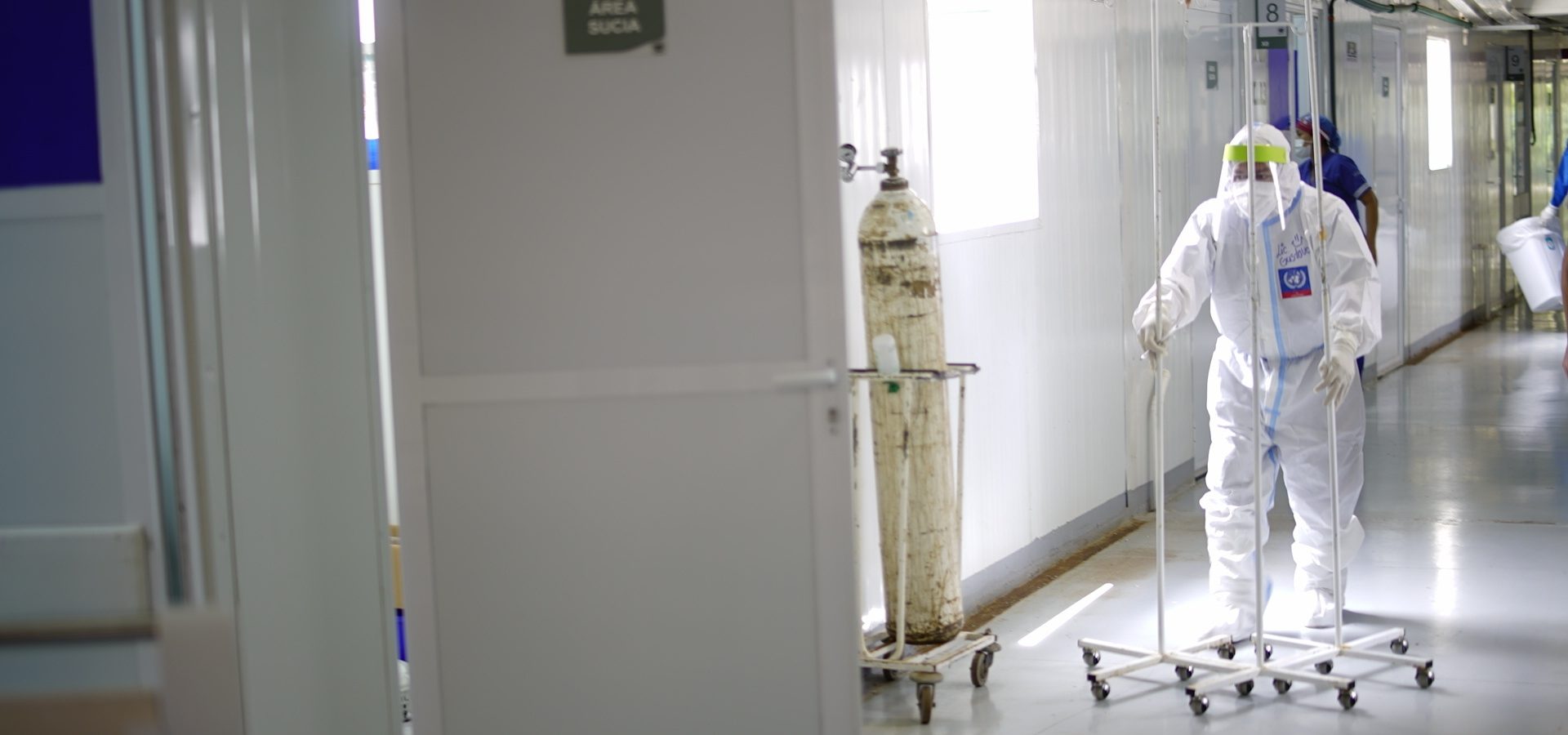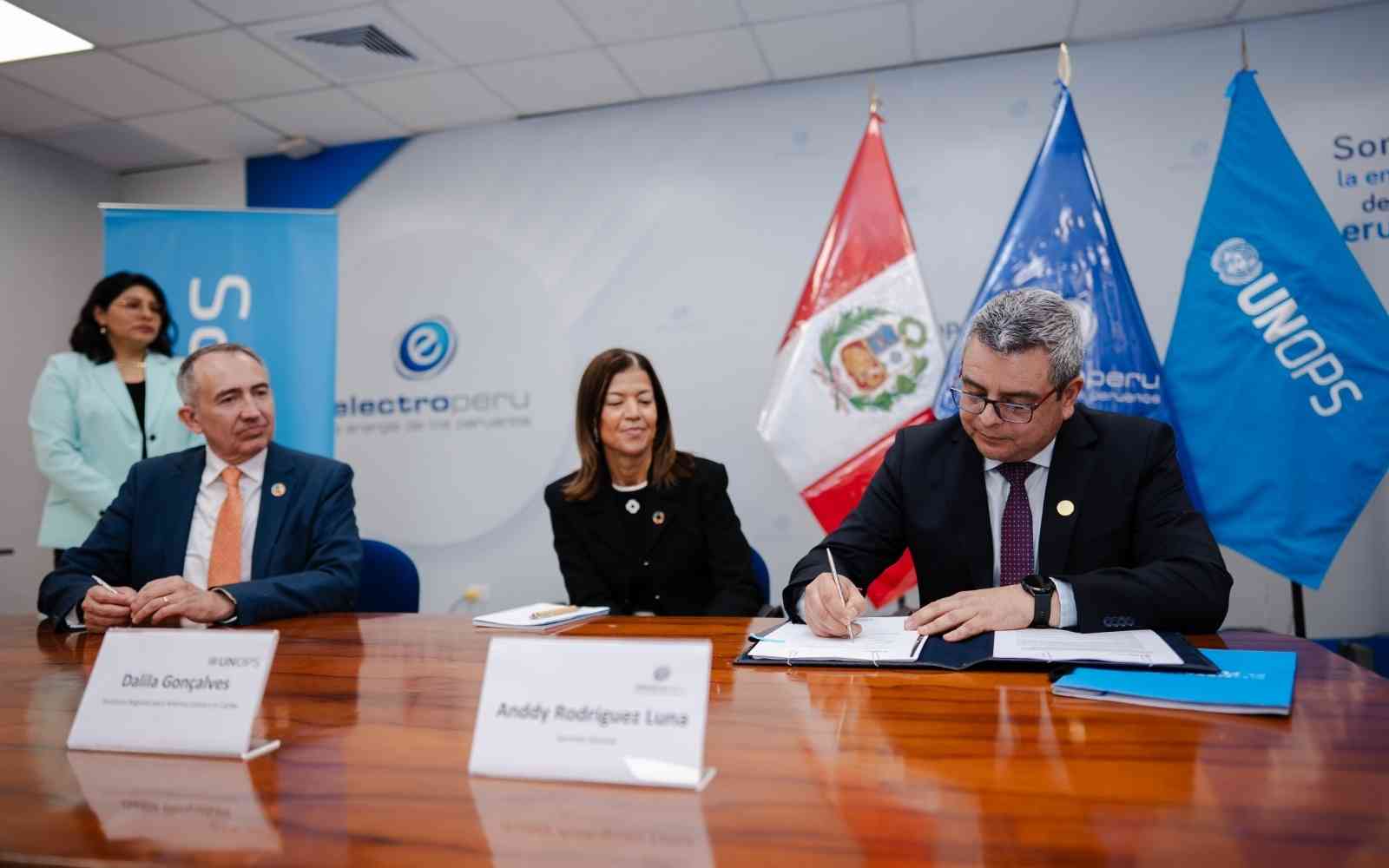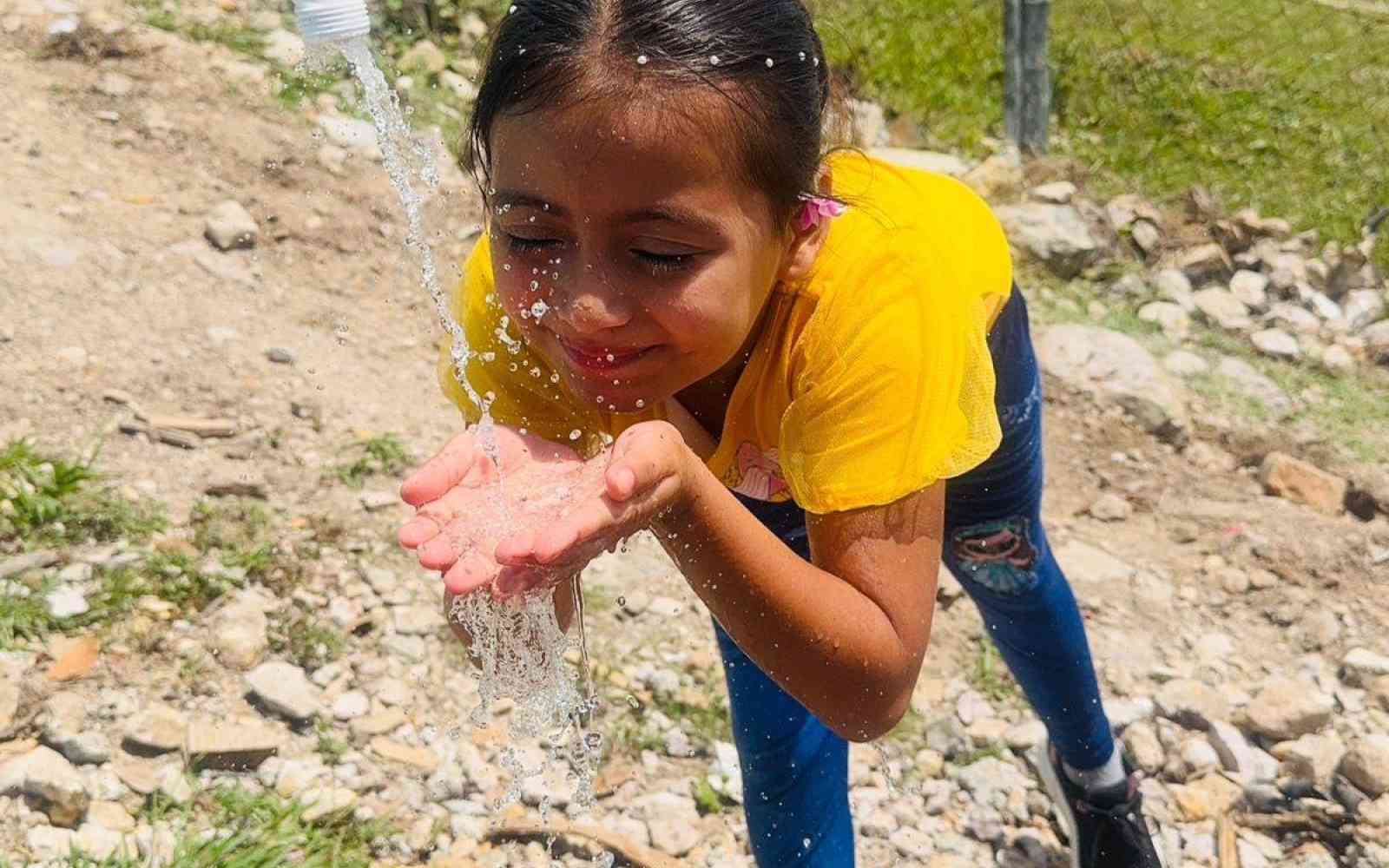The United Nations Office for Project Services (UNOPS)
COVID-19: One year later

For billions of people across the globe, the COVID-19 pandemic brought life as they knew it to a stop. At UNOPS, our focus has remained resolutely on saving and improving lives.
On behalf of our partners, UNOPS has been working to support COVID-19 response and recovery efforts around the world.
In the midst of the global pandemic in 2020, we agreed around $900 million worth of projects in support of the COVID-19 response – helping countries address their most pressing needs and mitigating the long-term impacts of the pandemic.
Across the world, this work was wide-ranging.
In Myanmar, the UNOPS-managed Access to Health Fund – funded by the United Kingdom, Sweden, the United States and Switzerland – helped improve the country’s testing capacity by procuring test kits.
In Brazil, funded by the government of Japan, UNOPS supported COVID-19 response efforts by procuring medical equipment for public hospitals across the country.
In Argentina, UNOPS supported the government in all aspects of COVID-19 response, from building 11 hospitals across 4 provinces using state-of-the-art technology, to procuring ventilators, face masks and diagnostic kits.
In the Western Balkans, funded by the European Union, we supported COVID-19 response and recovery efforts, from helping procure emergency supplies and equipment, to supporting stronger health systems in the longer term.




In Iraq, funded by the World Bank, UNOPS supported the Ministry of Health and Environment by procuring equipment and supplies through an emergency procurement procedure to support the country’s COVID-19 response.
Across Small Island Developing States, we helped accelerate response efforts thanks to our ability to provide rapid and effective procurement services in complex and remote environments.
And in addition to work based in countries, we undertook a number of regional and global initiatives.
In the Horn of Africa, with funding from the European Union, we have been supporting the Intergovernmental Authority on Development with tackling the health and socio-economic impact of the COVID-19 pandemic across eight countries. Here, UNOPS manages projects aimed at supporting migrants, refugees, internally displaced persons and cross-border communities.
With funding from the Korea International Cooperation Agency, we are procuring medical supplies and equipment – including personal protective equipment and COVID-19 test kits – for the governments of Cambodia, Ethiopia, Indonesia, Lao People’s Democratic Republic, Myanmar, Tajikistan, Uzbekistan and Vietnam. This is also allowing us to support the Ethiopia-based Africa Centres for Disease Control and Prevention, which will support COVID-19 response efforts in a further 12 countries in Africa.
And we worked with the Universal Postal Union, a specialized agency of the United Nations, to procure and distribute personal protective equipment for postal workers in least developed countries. This crucial work is helping protect postal workers – who are critical to supply chain networks during this pandemic but can be highly exposed.




Continuing to strengthen the capacity of healthcare services will be crucial for governments in the months ahead. As vaccination efforts are expanded, strong collaboration between all stakeholders – including the public and private sectors – is crucial to ensure that everyone receives vital COVID-19 vaccines. No one is safe until everyone is safe.
From strengthening health systems to scaling up vaccination efforts, we need a unified global response to defeat this virus. UNOPS continues to support our partners, to ensure that everyone, everywhere, gets access to the healthcare they deserve.












